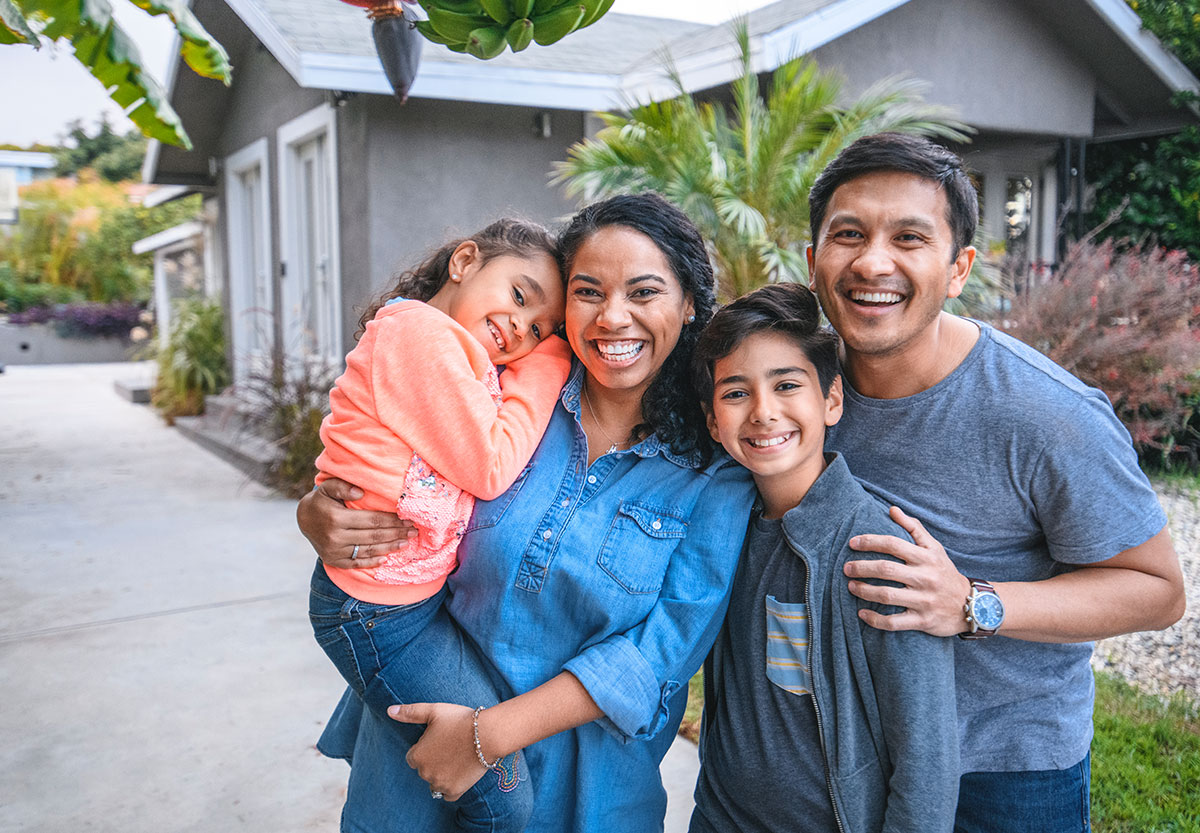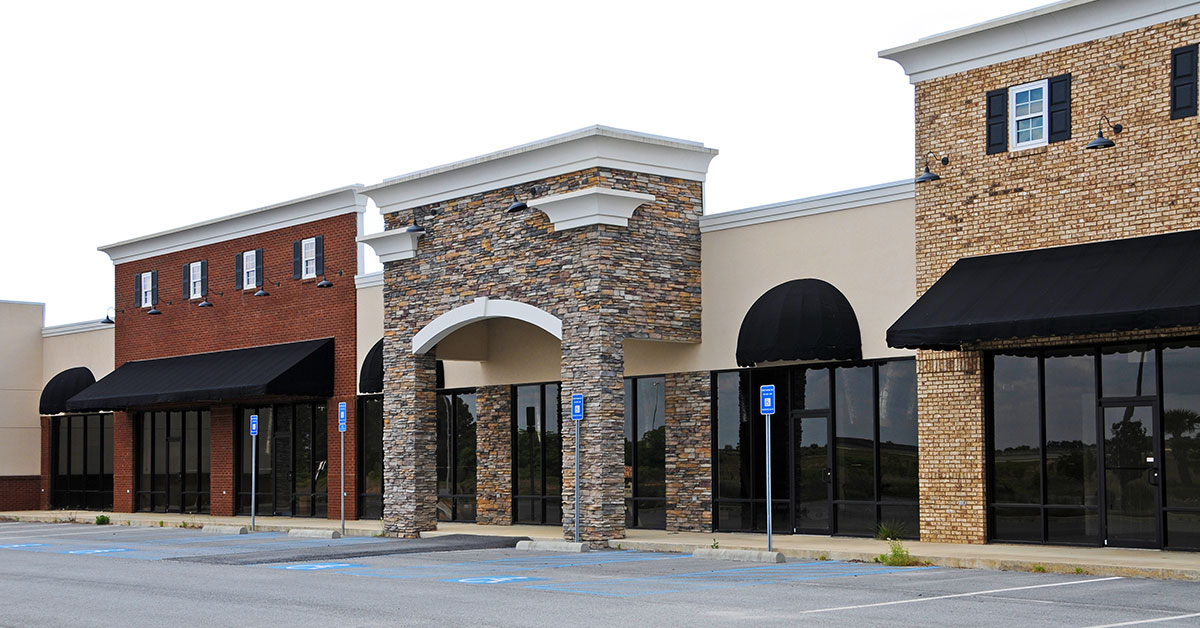
How to Save Money for a Home
Jump To:
- Savings You Could Need
- Step-by-Step Plan to Save
- Where to Uncover Savings
- Programs for First-Time Buyers
- Applying for Mortgage Preapproval
- Ways to Find an Agent
- First-time Buyer Resources
- Emergency & Additional Savings Tips
- How Community First Can Help
Your Playbook & Savings Plan for Becoming a Homeowner in One Year
There are several moving parts to buying a home – especially your first home. A strategic home savings plan and playbook can help you stay motivated and can give you time to cushion your bank account.
To get started, let’s break down how much you might need to save to meet your goal of buying a home in a year!
Determine Your Savings Goal for Buying a Home in Florida
In late 2025, the median home price** for a single-family home in Jacksonville, Florida, for example, is $398,743, or roughly $400,000. Closing costs are usually between 2% and 5% for buyers, and most down payments range from 3% to 20% of the home price. It is also suggested that homebuyers have emergency move-in funds ready.
Here is a breakdown of potential savings you may need to purchase a $400,000 home in Florida:
| Low End | High End | |
| $12,000 (3%) | Down Payment | $80,000 (20%) |
| $8,000 (2%) | Closing Costs | $20,000 (5%) |
| $3,000 | Emergency/Move-In Funds | $5,000 |
| $23,000 | Total | $105,000 |
| $1,916 | Monthly Savings Goal | $8,750 |
If you’re targeting the low-end goal, your one-year savings target is $23,000. Divide this by 12 for your monthly savings goal. You will need to save $1,916 per month. For the high-end goal, you would need to save $8,750 per month. This is not feasible for many people, which is why Florida’s first-time homebuyer programs are so valuable. (Read more about first-time buyer options below.) However, if you do not meet the criteria for a first-time homebuyer mortgage, or down payment assistance, you could extend your goal. For example, you would need to save $2,916 per month for 36 months. If you pushed your goal to 4 years, you would need to save $2,187 every month. (Keep in mind, home prices and interest rates can change dramatically in that period of time.)
Step-by-Step Plan to Meet Your One-Year Savings Target
Now that you have a savings goal and rough target date, you can set a budget to keep yourself focused. Here is a quick guide to help you get started:
Budget Assessment and Setup
- List income and all regular expenses
- Identify non-essential expenses to cut back on (dining, entertainment, subscriptions)
- Open a high-yield savings account specifically for your home savings
Increase Your Cashflow
- Direct all bonuses, tax refunds, monetary gifts, and more to your home savings account
- Take on additional side gig projects if possible
- Ensure any funds you’re putting toward your home savings plan are kept in a savings account, as cash can’t be used for a mortgage transaction
Automate your Saving
- Adjust your direct deposit to send a percentage of pay to your home savings account
Reduce Monthly Costs
- Negotiate for lowered bills on insurance, utilities, and streaming (switch providers where needed)
- Consolidate high-interest debt to free up cashflow
Track Your Progress Monthly
- Assess where you are to goal
- Adjust targets if necessary
Quick Ways to Tally Up Potential Savings
While saving for a home can feel overwhelming, there are often daily and weekly habits you can cut or reduce over the next year to dramatically increase your chances of meeting your home savings goal. Below are a few examples. Your personal budget may also uncover other areas of spending that you can reduce.
Cut or Reduce Dining Costs
The average cost** for two at a mid-range restaurant in Jacksonville, Florida is $91.00. If you were to cut dining out once per week for 52 weeks, you would save $4,732. If you normally eat out twice per week, you could save $9,464 in one year! That alone puts you at 78.8% of your low-end downpayment goal of $12,000.
Brew & Bring Your Own Beverages
- The average cost of a regular cappuccino** in Jacksonville is $5.44. You could save $1,985 in a year if you eliminate the daily coffee run!
- The average cost of a 12-oz bottle of water is $2.31. If you replaced two bottles per day with a pre-filled bottle from home, you could save an additional $1,686 in a year.
- That means your combined savings could be $3,671!
Carpool: Average yearly fuel costs for a 5-day per week, 44-mile round trip commute** in Jacksonville, is $1,601.60. You could put an additional $800 toward your home savings plan by carpooling with one person for work.
Holiday budgeting: The average Jacksonville resident spends roughly** $1,333 over the months of November and December on gifts and holiday activities. If you could cut this in half, you could have an additional $666 toward your home savings goal.
Just from a few examples, you can see how budgeting and financial discipline can help you meet your one-year plan of buying a home.
Research First-Time Buyer Programs
When you’re just starting out, you may not be aware of the programs available to first-time buyers. These programs make home-ownership possible for people who may have limited incomes, or don’t have a large enough nest egg to cover the down payment and closing costs.
Here are a few options available:
Florida Housing First Homebuying Loan Program: This program offers 30-year fixed rate first mortgage loans to first-time buyers through participating lenders. Eligible borrowers may also participate in second mortgage programs to help with down payment and closing costs. This program has limitations on income and home prices that can vary by county and household size. Learn more at FLHousing.org.**
The Florida Assist: This is a down payment assistance program in the form of a deferred second mortgage. It offers up to $10,000 as a 0%, deferred second mortgage and is available on conventional, FHA, VA and USDA loans. There are also income and purchase price limitations that vary by county.
The Florida Homeownership Loan Program Second Mortgage: This is another down payment assistance program, and it offers $10,000 as a 3% fully amortizing, 15-year second mortgage. It’s a good option for homebuyers who need help with a down payment and closing costs but can’t qualify for a deferred or forgivable second mortgage. Learn more.
First-Time Homebuyer Mortgages with Community First
Community First Credit Union of Florida offers a first-time homebuyer mortgage with several key benefits that can speed up your one-year plan to become a homeowner!
Here is how you can save with a first-time buyer mortgage from Community First:
- No down payment*
- Low closing cost
- No PMI* (private mortgage insurance)
- Low rates
- Quick closings
You can also partner with a Community First Home Mortgage Advisor to guide you through the process. Learn more at Community First, or call 904.574.5885 to speak to an expert any time from Monday through Friday, 8 am to 6 pm.
Apply for Mortgage Preapproval
This is a big step in your home-buying journey. Preapproval is a preliminary approved purchase price and loan amount commitment from a lender on how much they are willing to loan you, and it can give you an idea of how much home you can afford. A mortgage pre-approval letter gives you negotiating power and can streamline the closing process. You can usually apply online at your preferred lender’s website or in a branch.
Generally, to apply you will need:
Personal identification: This usually includes current (not expired) government issued ID such as your driver's license or passport. You may also be asked to show your social security card, or other information.
Proof of Income: W-2 wage earners typically need to provide their two most recent IRS W-2 forms and two most recent pay stubs. If your income includes overtime, bonuses, or differential pay, you may need to provide your end-of-year pay stub as well.
Employment verification: Lenders may ask for an employment verification letter along with paystubs, which show your job title, start date and salary.
Assets: Typically, applicants will need to provide 60 days' worth of statements for each account whose assets will be used to qualify for the mortgage. This includes statements for checking and savings accounts, as well as two months of statements from IRAs, investment accounts, and CDs. If you have 401 K, you'll need to provide the last quarterly statement.
Debt: Lenders will look at your monthly debt payments to calculate your debt-to-income ratio. This would be documented in your credit report, along with your credit score, but some lenders may ask for unreported debts. This can include alimony, child support or tax liens.
Find a Real Estate Agent
Once you have a pre-approval, you can find a licensed real estate agent to help you find your new home! There are several ways to find an agent, including but not limited to the following websites:
You can also ask a family or friend for a recommendation. To verify whether a real estate agent’s license is active, search the Florida Department of Business & Professional Regulation.
Start House Hunting
Now it’s time for the exciting part - looking for your new home! Your real estate agent will partner with you to find the right square footage, amenities, and neighborhood. Whether you’re looking in Jacksonville or another Florida city, you can enter the house hunting process with more confidence since you’ve saved money and done your research!
Additional Resources from Community First
- How Much Home Can You Afford?
- Looking for Your First Home in Jacksonville
- Types of Loans for First Time Buyers
Things to Know as a Homeowner
Purchasing a home is a huge accomplishment that should be celebrated! As a first-time buyer it is exciting to paint, decorate, plant flowers, and so much more. It’s also important to maintain the financial discipline you learned during your one-year savings plan, so that you’re prepared for the unexpected.
Potential Savings You May Need as a Homeowner
Many advisors recommend that a homeowner keeps 3 to 6 months of expenses available in an emergency savings account. When you first transition from renting to owning, there are often surprise expenses that you hadn’t considered.
Understanding how much you need to save can feel daunting but following a few guidelines can help you set a savings target. Start by adding up your monthly expenses for essentials, excluding dining and entertainment. Multiply that by three. For example, if your essentials are $4,000 per month, you can assume you will need to have at least $12,000 in your savings account to survive for three months in the event of a job loss or other emergency that interrupts your income stream.
Emergency savings will help you cover:
- Mortgage payments
- Insurance
- Car payments
- Food
- Utilities
- And more
Additional Savings
- Emergency AC repairs
- Home insurance deductibles
- Yard maintenance
- Homeowners association fees
- And more
As a quick reference guide, a homeowner could need the following cash reserves:
| Low End | High End | |
| $4,000 | Emergency Living Expenses | $12,000 & up |
| $5,000 | Additional | $10,000 & up |
| $9,000 | Total | $22,000 & up |
(This is a guide only and could differ by location, home price, and personal budget.)
Community First Can Help You Meet Your Homeownership Goals
Community First Credit Union of Florida offers financial education courses that can help you meet your goal of becoming a homeowner in one year, two years, or any time frame that works for your life. Learn more about saving for a home, budgeting, and more, with our BALANCE and MoveUP courses.
Get personalized support when you call our Community First Mortgage Advisors at 904.574.5885, from Monday through Friday, 8 a.m. to 6 p.m. Our dedicated advisors have decades of experience in Florida and are ready to assist you in buying your first home.
Federally insured by NCUA. All new accounts and loans are subject to approval and membership eligibility required. Please visit our website at communityfirstfl.org/connect/become-a-member or call 904.354.8537 for more information on membership requirements.
*Up to 100% financing of purchase price at or below $400,000. Maximum loan amount is $400,000. Closing costs are paid by the borrower. No Private Mortgage Insurance required. Other exclusions and restrictions apply. Product offers, rates, terms and conditions, and other information provided here are subject to change without notice.
**All information contained in this blog is for informational purposes only. The credit union makes no representations as to the accuracy, completeness, suitability, or validity, of any information. The credit union is not responsible for any errors, omissions, or any losses, injuries, or damages arising from its display or use. All information is provided AS IS and with no warranties and confers no rights.
The credit union is not responsible for material that is found through non-credit union links posted on this blog site. Ideas and strategies should never be used without first assessing your own personal and financial situation, or without consulting a financial professional.









